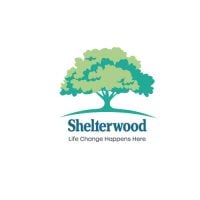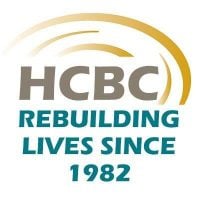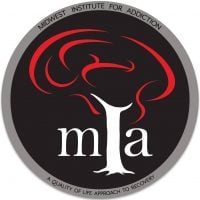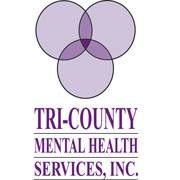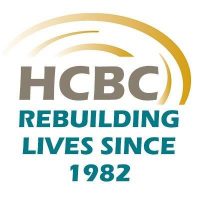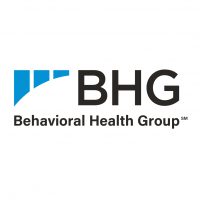Shelterwood - Rebalance
Drug Rehab Center in Independence, Missouri
Shelterwood - Rebalance is a world-renowned Addiction Treatment Facility located in Independence, MO that has been providing expert care and specialized programs tailored to each individual's needs for over 40 years, including Inpatient, Intensive Outpatient, Outpatient and Partial-Hospitalization services as well as being accredited by JCAHO and accepting Private Health Insurance.
About This Missouri Facility
Shelterwood - Rebalance is an addiction treatment facility located in Independence, Missouri. Founded in 1980, it has over 40 years of experience in treating individuals suffering from substance abuse, drug addiction, alcoholism, and dual diagnosis. The facility offers a range of levels of care, including drug rehab, inpatient treatment, intensive outpatient programs, outpatient services, and partial-hospitalization. Shelterwood - Rebalance is accredited by the Joint Commission on Accreditation of Healthcare Organizations (JCAHO), ensuring that it meets rigorous standards of quality and safety. This certification provides reassurance to individuals seeking treatment that they will receive effective and evidence-based care at Shelterwood - Rebalance.
At Shelterwood - Rebalance, individuals struggling with addiction and substance abuse can access a variety of comprehensive services. These services go beyond traditional treatment approaches and are tailored to meet the unique needs of each person. The facility offers drug rehab programs that provide a structured environment where individuals can receive support and guidance as they work towards recovery. In addition to inpatient treatment, Shelterwood - Rebalance also provides intensive outpatient programs, outpatient services, and partial-hospitalization options. These different levels of care cater to individuals at various stages of their recovery journey, ensuring that they receive the appropriate level of support and treatment. By offering a comprehensive range of services, Shelterwood - Rebalance strives to provide individuals with the tools and resources they need to overcome addiction and achieve lasting recovery.
Genders
Ages
Modality
Additional
Accreditations

JCAHO
Conditions and Issues Treated
People who abuse drugs are likely to suffer from an addiction, which can cause serious health problems. When it comes to helping drug abusers get sober, there are many options to choose from. It is essential to state that there is no “”correct”” way of doing things. People are different, and they need different types of help to get over their addiction.
Levels of Care Offered at Shelterwood - Rebalance
This center offers a variety of custom treatment tailored to individual recovery. Currently available are Drug Rehab, Inpatient, Intensive Outpatient, Outpatient, Partial-Hospitalization, with additional therapies available as listed below.
Individuals who are suffering from severe addiction or have a high risk for dangerous health concerns are often recommended to receive inpatient treatment.
Choosing to enter an inpatient treatment program is beneficial for people who are suffering from severe addiction, or who have a high risk for dangerous health concerns.
Inpatient treatment is beneficial for:
- People who have a history of severe withdrawal.
- People who have attempted to overcome addiction on their own without success.
- People who have a history of relapse, or have recently relapsed.
- People at risk for drug overdose or withdrawal-related complications.
- People with medical conditions that are worsened by drug or alcohol use.
Outpatient addiction treatment is beneficial for people who are able to function well in their day-to-day lives. It is recommended for people who are not yet ready to end their relationships with friends or family members who might be encouraging drug and alcohol use.
Intensive outpatient treatment is beneficial for:
- People who are able to attend treatment more than 3 times per week.
- People who do not meet the criteria for inpatient treatment.
- People who are able to contribute to their own recovery outside of the treatment center.
- People who are motivated towards recovery.
- People who are able to overcome addiction on their own without the need for higher levels of care.
Outpatient treatment programs provide drug and alcohol addiction treatment through individual sessions with a counselor, group therapy, 12-step meetings, and other activities to help individuals gain sober living skills. Most programs are designed for those individuals who have completed a medically supervised detoxification program and provide opportunities for clients to begin the process of early recovery.
Outpatient programs also offer a level of medical support as needed and psychological backing through therapy. Clients are encouraged to live at home, though there may be some flexibility regarding this requirement based on the circumstances and needs of each patient.
Outpatient treatment is perhaps the most common type of dual diagnosis program available. It does not pose a significant financial burden on patients. However, it is essential to note that outpatient treatment does not provide the support and supervision given in residential programs. Some addicts may need this level of support to maintain their sobriety.
Partial Hospitalization Program, or PHP, is a type of drug addiction rehabilitation in the patient’s home. Patients often have to come into Shelterwood - Rebalance for treatment on weekday evenings and weekends. They must also attend an intensive outpatient program at least 9 hours per week while attending PHP. The patient will meet with a counselor or therapist to help them work through their addiction issues. This type of treatment is used for patients who can go out among society but are at risk of relapsing due to continued exposure to drugs or alcohol.
Therapies & Programs
Therapy sessions focused on the individual addict can provide much-needed guidance as they work toward overcoming their addiction. These types of sessions typically involve guidance from a therapist, who will help addicts identify and process their feelings and cravings.
During these sessions, addicts may develop plans for coping with the triggers that typically lead to relapse and learn how to avoid those triggers during their recovery process.
The main goal of family therapy for drug addiction is to create an environment where communication can occur without judgment, hostility, or blame that often occurs within a family.
Family therapy is a type of group problem-solving that aims to improve communication and relationships between the patient, their family, and sometimes friends. The therapist is with the family as they learn to communicate with each other differently, especially with the addict when s/he is using.
The family can learn to reduce their enabling behavior or rally together and support each other during tough times. The patient also learns how to deal with their addiction and maintain sobriety while interacting with the family.
Different types of addiction treatment services are available. Within this article, group therapy is of interest due to its high success rate compared to individual therapy. Group therapy settings are beneficial because they allow recovering addicts to build a strong support network.
Benefits of group therapy are:
- Reduces feelings of isolation
- Immediate access to social support in the form of fellow addicts in recovery
- Lowers risk of relapse
- Increases rate of sobriety
- Builds coping skills that can be applied to everyday life
Dialectical Behavior Therapy is a cognitive-behavioral therapy that helps addicts balance their thoughts and emotions to change their behavior. It was designed for those vulnerable to self-harm and suicidal thoughts and aims to help patients understand the connection between their feelings, emotions, and behaviors. It is effective for those whose addictions and behaviors stem from severe mental health issues.
Eye movement desensitization and reprocessing, shortened to EMDR, helps patients with past events. The short treatment offered at the Shelterwood - Rebalance in can reduce their levels of anxiety while making it easier for them to overcome old traumas. This method also boosts healing which calms many down, allowing one to feel more in control when fighting addiction. EMDR is a therapeutic method used by therapists that provides stimulus to people recounting traumatizing events such as hand tapping or moving visual stimuli they follow while telling about what has happened so far until now.
Patient Experience
Experiential Therapy at Shelterwood - Rebalance
Experiential therapy is a form of psychotherapy where patients are asked to engage in activities such as role-play, poetry writing, music composition, exercising, or journaling to help process intense feelings. The aim of the therapy is to help patients access deeper, often hidden emotions by helping them explore their own body and mind.
Payment Options Accepted
For specific insurance or payment methods please contact us.
Is your insurance accepted?
Ask an expert, call (888) 674-0062
Additional Details
Specifics, location, and helpful extra information.
Independence, Missouri 64058 Phone Number(800) 584-5005 Meta DetailsUpdated November 25, 2023
Staff Verified
Patient Reviews
There are no reviews yet. Be the first one to write one.
Independence, Missouri Addiction Information
Opioid-related overdoses in Missouri have been increasing steadily for the past three decades. In 2018, more than 1,130 people in Missouri died from opioid abuse. Methamphetamines and marijuana abuse have surpassed opioid abuse in Missouri. Missouri is the number 1 methamphetamine manufacturer in the country with more than 27 meth labs per 100,000 people.
In Independence, Missouri, drug addiction is a serious problem. Approximately 9.4% of people in Independence, Missouri, abuse drugs. Additionally, about 18.7% of people in Independence binge drink. One in every five teens will try marijuana before the age of 18. Independence's most common drug rehab treatments include individual counseling, group therapy, behavioral modification, and 12-step programs. These treatments can be effective in helping patients overcome their addiction and achieve sobriety.
Treatment in Nearby Cities
- Lexington, MO (22.6 mi.)
- Doniphan, MO (258.5 mi.)
- Smithville, MO (21.7 mi.)
- Saint Charles, MO (206.1 mi.)
- Perryville, MO (260.1 mi.)
Centers near Shelterwood - Rebalance
The facility name, logo and brand are the property and registered trademarks of Shelterwood - Rebalance, and are being used for identification and informational purposes only. Use of these names, logos and brands shall not imply endorsement. RehabNow.org is not affiliated with or sponsored by Shelterwood - Rebalance.
